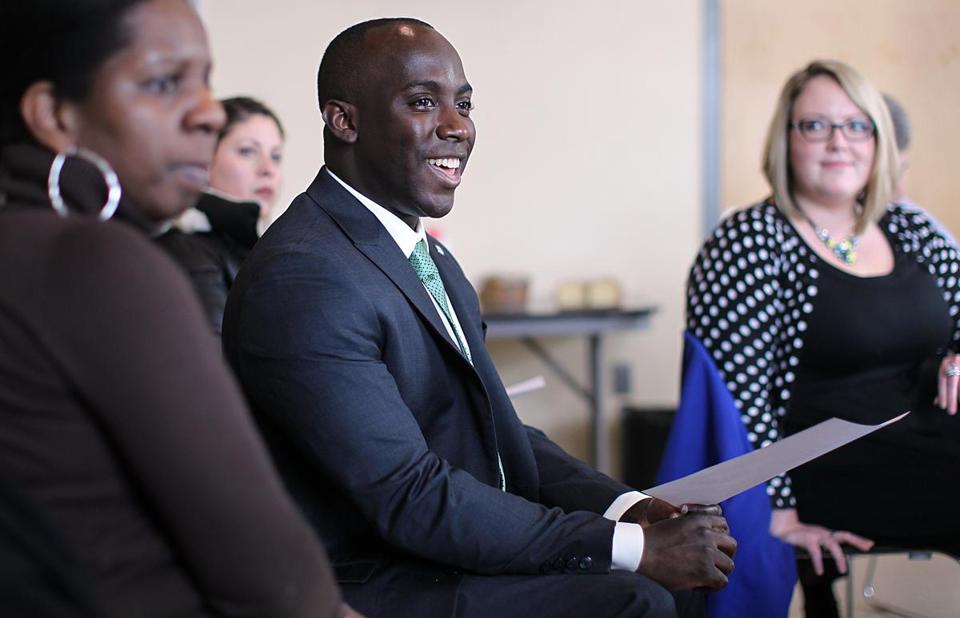available for purchase
at this time.
Link Roundup! – 4/3/15
Link Roundups feature articles and bits of internet goodness that our dramaturgy team digs up. If you find something you want to send our way, drop us a line on Facebook or Twitter!
♦♦♦♦♦

Shaun Blugh, 30, has been appointed the City of Boston’s first-ever chief diversity officer. Photo: Suzanne Kreiter/Globe staff
The Boston Globe has a story about the mayor’s new Office of Diversity and their efforts to make Boston workforces more equitable:
A glimpse at the city’s roughly 15,000 full-time employees underscores their challenge. In a city in which people of color constitute 53 percent of the population, Boston’s municipal workforce remains 61 percent white, according to records released to the Globe under the state’s open records law. Women slightly outnumber men at City Hall, but on average are paid 7 percent less than their male counterparts.
♦♦♦♦♦
The Non Profit with Balls blog has a post up about “Fakequity” — a term he coined for organizations that claim to be interested in creating equity, but don’t participate in active change:
So how does this apply to Equity? People seem to think that forming an equity committee, talking about equity, sending staff and board to trainings, “listening” to communities, conducting research and gathering data, and adding terminologies to websites and brochures are sufficient to achieving equity. But no, these things are necessary, but not sufficient. When we just talk about Equity and go no further, we are guilty of Fakequity. I’ve seen many well-meaning organizations and foundations spend years talking about equity, congratulate themselves on it, and don’t do anything else that would actually help to bring about Equity.
♦♦♦♦♦
Scott Walkers, writing for Clyde Fitch Report, has an essay about why we need more crappy plays in the American theatre:
What would it be like if the popular music scene consisted only of covers of songs of the 1940s, 1950s, and 1960s? What would it be like if the only films that were made were reworkings of movies of the 1930s? I can tell you with confidence what it would be like; it would be like the current world of theatre: conservative, irrelevant, unpopular, lacking in energy, lacking in diversity, and unable to attract a young audience. What makes the current renaissance in television writing possible? The demand for new ideas, new stories, new forms. Artists love that.
♦♦♦♦♦
Howard Sherman looks at Meerkat and Periscope, two new app-based video streaming services, and how new technologies like this might impact live theatre:
Video is now in the hands of virtually every person who attends the theatre, the opera, the ballet and so on. Short of frisking or wanding people for phones and having them secured in lockers at every performance space (can you imagine?), the genie is out of the bottle. Don’t get me wrong, I’m not keen on the ramifications of these advances either, but there’s no point in damning reality. The question now is how do the arts respond – by seeking to police its audiences as if attending a performance resembled an ongoing TSA checkpoint, or by offering alternatives that just might make the newest developments unappealing or irrelevant?
